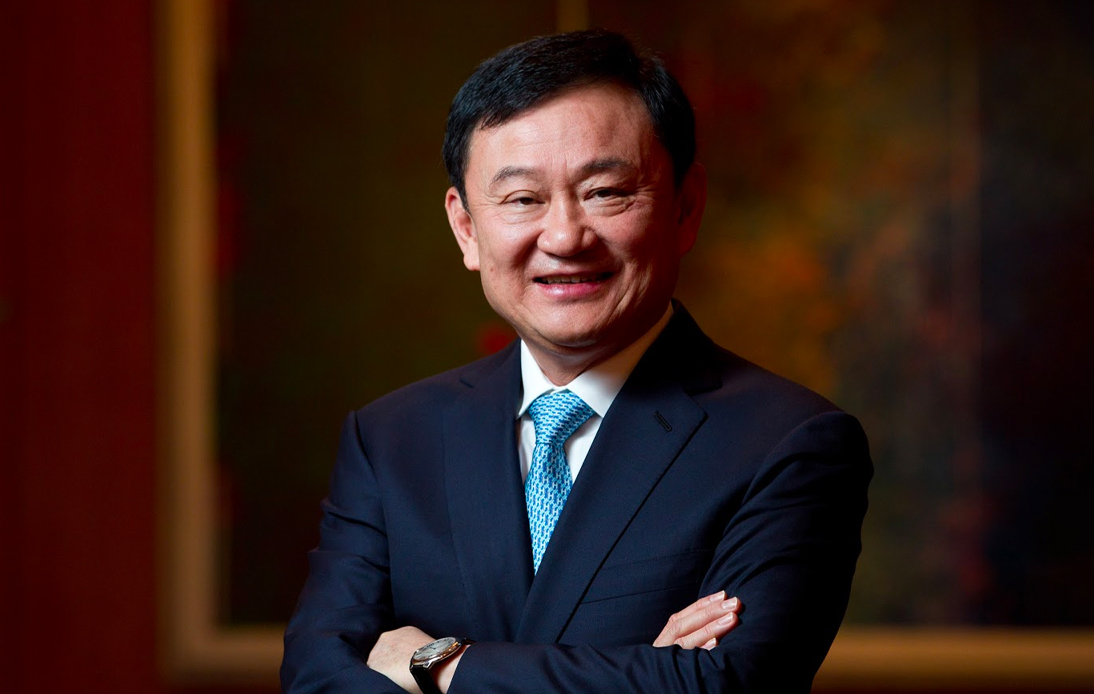
Scholars think a recent tweet by the fugitive ex-Prime Minister Thaksin Shinawatra was a political ploy to gather support for the Pheu Thai Party, which is predicted to lose votes to the increasingly popular Move Forward Party (MFP) before the May 14 general election.
Thaksin posted on Monday that since his youngest and seventh grandchild was born, he plans to return soon as, at 73 years old, he desires to care for his grandchildren.
Thaksin expressed joy on Twitter upon learning that his daughter Paetongtarn Shinawatra had just welcomed his seventh grandchild.
He mentioned that all seven were born after he left Thailand.
“I’d like to ask for permission to return to take care of the grandchildren because I will be 74 years old this July. See you soon,” Thaksin stated.
Ms. Paetongtarn, a prime ministerial contender for the Pheu Thai Party, revealed on Instagram that her son was named Phruethasin Suksawat and nicknamed Thasin.
She expressed gratitude for the moral support and announced she would speak to the media once she had recovered from childbirth.
Nonetheless, Olarn Thinbangtieo, a political science lecturer at Burapha University, suspected that Thaksin’s tweet had a hidden political agenda.
“He previously promised that he would stop communicating,” Mr. Olarn commented.
He suggested that the recent tweet could be connected to a decrease in Pheu Thai’s popularity, particularly on social media where the MFP is gaining an advantage, especially in major cities like Bangkok.
“The MFP’s rising popularity will have an impact on Pheu Thai’s bid to achieve a landslide victory in the poll.”
“This may force Pheu Thai to enter into an alliance with parties from the opposite end of the political spectrum, which may lead to some undecided voters supporting the MFP instead of Pheu Thai,” he elaborated.
“This is why Thaksin has to step forward to call for sympathy from voters by saying he wants to return to take care of his grandchildren,” Mr. Olarn said.
Jade Donavanik, dean of the faculty of law at Dhurakij Pundit University, concurred, stating that Thaksin perceived the MFP’s growing popularity as a threat to Pheu Thai.
“Thaksin wants to ensure Pheu Thai’s traditional base of 11-15 million supporters is well guarded, and he should be happy about that,” Mr. Jade remarked.
He noted that Thaksin need not battle on multiple fronts against both the MFP and other rival parties, such as the United Thai Nation Party (UTN) or the Palang Pracharath Party, since the MFP is already an opponent of these groups.
Prinya Thaewanarumitkul, a law lecturer at Thammasat University, claimed that Thaksin’s latest tweet would persuade those who wish for his return to vote for Pheu Thai.
However, this would also encourage those who dislike him to back the UTN, which has Prime Minister Prayut Chan-o-cha as its prime ministerial candidate, Mr. Prinya pointed out.
On Oct 21, 2008, the Supreme Court’s Criminal Division for Holders of Political Positions sentenced Thaksin to two years in prison after convicting him of violating the National Counter Corruption Act in the Ratchadaphisek land purchase case.
He was accused of abusing his authority by allowing his then-wife Khunying Potjaman na Pombejra to participate in the auction of a 33-rai area offered by the Financial Institutions Development Fund. He escaped the country in 2008, right before the court.




















